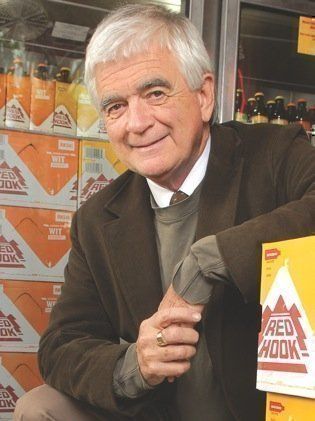Summary
Gordon Bowker is an American entrepreneur and co-founder of Starbucks Coffee Company. Born on February 4, 1942, in Seattle, Washington, Bowker played a significant role in establishing one of the world's most recognized coffeehouse chains.
In 1971, together with Jerry Baldwin and Zev Siegl, Bowker co-founded Starbucks Coffee Company in Seattle, Washington. The trio's mission was to offer high-quality, fresh-roasted, whole-bean coffees, celebrating the rich tradition of coffee while building strong customer loyalty. The name "Starbucks" was inspired by the romance of the high seas and the seafaring tradition of early coffee traders.
As a co-founder, Bowker played a crucial role in the early days of Starbucks, helping to shape its business model and growth strategy. He was instrumental in establishing Starbucks' brand identity and reputation for serving premium coffee to customers.
While Bowker eventually left Starbucks, his contributions to the company's early success laid a strong foundation for its subsequent growth and expansion into a global coffeehouse chain.
Beyond his involvement with Starbucks, Gordon Bowker has engaged in other entrepreneurial ventures and is recognized as a prominent figure in the business community.
Biography
Gordon Bowker, an American entrepreneur, has made significant contributions to the coffee and brewing industries. Born in Seattle, Washington, on an unknown date, Bowker's early life was marked by the loss of his father in World War II, leading to his upbringing by his mother, Hazel Ringseth Bowker. His family's heritage included Norwegian immigrants who participated in the Alaskan Gold Rush. Bowker graduated from O'Dea High School in Seattle and attended the University of San Francisco from 1960 to 1965, where he was roommates with Jerry Baldwin.
Gordon Bowker's career started in writing, as he penned educational film scripts for a division of King Broadcasting. He also contributed to Seattle magazine as a freelancer. During this time, he formed a partnership with Terry Heckler and co-founded the advertising agency, Heckler Bowker. Additionally, Bowker's path crossed with David Brewster at the magazine, and he played a role in funding the launch of Brewster's Seattle Weekly. Under the pseudonym Lars Henry Ringseth, Bowker wrote restaurant and hospitality reviews.
In 1971, a significant moment in Bowker's career occurred when he, along with Jerry Baldwin and Zev Siegl, opened the first Starbucks store near Pike Place Market in Seattle. This marked the beginning of what would become one of the most iconic coffeehouse chains globally. Subsequently, Starbucks acquired Peet's Coffee & Tea in 1984, expanding its presence in the coffee market. In 1987, Bowker and Baldwin decided to sell Starbucks to Howard Schultz and a group of investors, stepping away from the coffee business.
After leaving Starbucks, Bowker served on the board of directors for Peet's Coffee & Tea from 1994 to 2008, further contributing to the coffee industry.
Vision
Gordon Bowker's vision as a co-founder of Starbucks was centred around providing customers with a high-quality coffee experience. Alongside Jerry Baldwin and Zev Siegl, Bowker aimed to offer some of the world's finest, fresh-roasted, whole-bean coffees. Their focus on quality and attention to detail laid the foundation for Starbucks' reputation as a premium coffeehouse chain.
A key aspect of Bowker's vision was to create a welcoming and inclusive environment at Starbucks. He sought to build community spaces where customers could linger, socialize, and build connections. The idea of fostering a "third place" between home and work, where people could relax and enjoy their coffee, became an integral part of Starbucks' identity.
Innovation was at the core of Bowker's vision for Starbucks. As the company expanded, it embraced innovation in its offerings and business practices. Bowker likely envisioned continually adapting to market trends, introducing new coffee blends, and menu items, and exploring technology-driven services to enhance the customer experience.
Sustainability and ethical sourcing were also crucial elements of Bowker's vision. In recent years, Starbucks has demonstrated a commitment to responsible business practices, supporting coffee farmers, and promoting environmental stewardship. Bowker's vision likely included a strong emphasis on sustainability and contributing positively to the coffee industry's social and environmental impact.
Empowering employees was another integral part of Bowker's vision for Starbucks' success. The company's dedicated and motivated baristas and staff have been a driving force behind its accomplishments. Bowker aimed to create a positive work culture, empower employees, and provide opportunities for professional growth and development within the organization.
As Starbucks expanded beyond its initial Seattle location, Bowker's vision included a desire to make the coffeehouse experience accessible to customers worldwide. The global growth and recognition of Starbucks became a testament to Bowker's vision of bringing the coffeehouse culture to diverse communities across the globe.
References
- Gordon Bowker profile | Wikipedia
- Our founders | Starbucks
- Biography of Gordon Bowker | Wikiwand
- Profile of Gordon Bowker | Golden Wiki
- Gordon Bowker: The Biography Orwell never wrote | Orwell Foundation
- Gordon Bowker - 10 Things You Didn't Know About The Starbucks Co-Founder | Zero Degree Entrepreneur
- Starbucks | openbusinesscouncil.org
- Zev Siegl openbusinesscouncil.org
- Jerry Baldwin | openbusinesscouncil.org
- Gordon Bowker's biography | People Pill
- Bowker et Baldwin, aux origines de la saga Starbucks | Les Echos
- Starbucks co-founder talks about early days, launching Redhook and Seattle Weekly, too | The Seatle Times
- How Starbucks Was Born Half A Century Ago | Forbes
- Starbucks insider shares where the popular chain got its name | New York Post
- Starbucks – The Start-Up Story Of Jerry Baldwin, Gordon Bowker, and Zev Siegl Who Created A Coffee Empire | Business Ideas Lab
- Gordon Bowker reflects on Starbucks, Redhook | The Business Journals
- The Three Passionate Students Who Created Starbucks | Inspirit
- Gordon Bowker timeline | From O’Dea High to Hawaiian guitar | The Seatle Times

